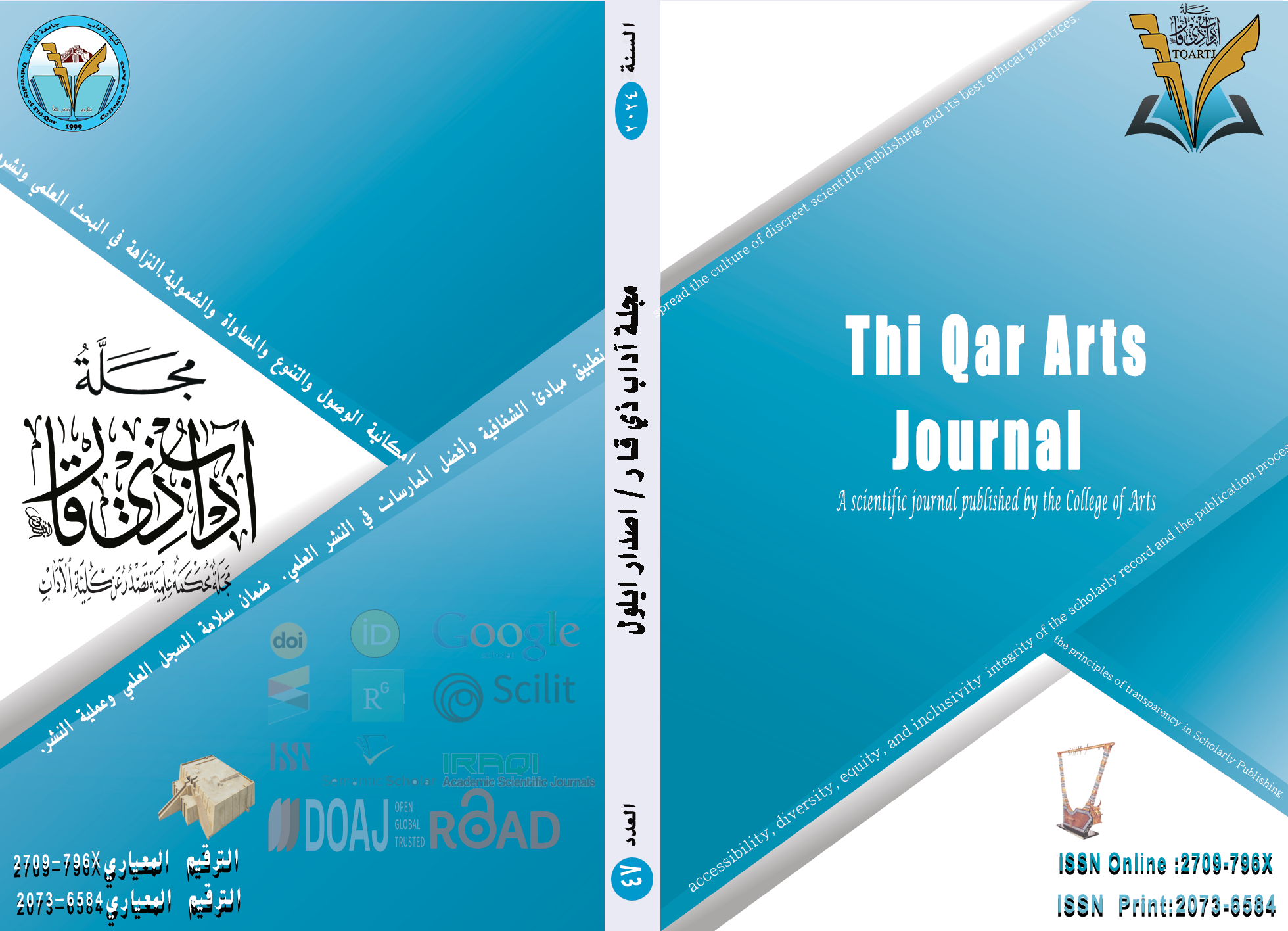The Problem of Tradition and Modernity in the Thought of Mohammed Abed Al-Jabri
DOI:
https://doi.org/10.32792/tqartj.v10i47.695Keywords:
Tradition, Renaissance, Modernity, Contemporaneity, Reading, Methodology, IdeologyAbstract
The problem of tradition and modernity is the central axis around which Arab thought revolves, encompassing the options of renaissance and progress, reform and renewal, modernity and contemporaneity. This issue has been a focal point since the famous phrase by the Lebanese writer and thinker Shakib Arslan (1869-1946) in one of his books titled "Why Did Muslims Lag Behind and Others Progress?"
Moroccan thinker Mohammed Abed Al-Jabri (1935-2010) was not alone in this field; he was preceded by other intellectual projects such as Adonis's "The Static and the Dynamic" and Hussein Mroueh's (1919-1987) "Materialist Trends in Islamic Philosophy," among many others. These thinkers were equipped with modern methodologies to read and understand this heritage. Al-Jabri attempted to provide a critical reading of the heritage, exploring its origins and roots by utilizing the archaeological approach of French philosopher Michel Foucault (1926-1984) to uncover the structure governing Arab thought.
This research is divided into five sections. The first section addresses the question of modernity and tradition in Arab thought and its connection to the questions of renaissance as an extension of it. The second section presents the prevailing readings of heritage, detailing the perspectives represented in Arab thought, including the Salafi, liberal, and Marxist readings, which Al-Jabri considers all to be Salafi readings with only theoretical differences.
The third section discusses the tools employed for reading heritage and the methodological steps used by Al-Jabri, including structural analysis, historical analysis, and ideological critique. The fourth section is dedicated to the topic of connecting the reader with the text and the problem of continuity, as discussed by Al-Jabri in his book "We and the Heritage." The fifth section provides a quick critical review of Al-Jabri's project, questioning whether his procedural steps and methodologies enabled him to achieve an objective reading.
Downloads
References
1. Mohammed Abed Al-Jabri, We and the Heritage: Contemporary Readings in Our Philosophical Heritage, Dar Al-Tali’a, Beirut, Lebanon, 1st edition, 1980.
2. Mohammed Abed Al-Jabri, The Formation of Arab Reason, Center for Arab Unity Studies, Beirut, Lebanon, 7th edition, 1998.
3. Mohammed Abed Al-Jabri, Heritage and Modernity: Studies and Discussions, Center for Arab Unity Studies, Beirut, Lebanon, 1st edition, 1991.
4. Mohammed Abed Al-Jabri, Contemporary Arab Discourse: A Critical Analytical Study, Dar Al-Tali’a, Beirut, Lebanon, 2nd edition, 1985.
5. Al-Jabri, Hanfi, Dialogue of the East and the West, Arab Institution for Studies and Publishing, Beirut, Lebanon, 1st edition, 1990.
6. Zawawi Bagoura, Michel Foucault in Contemporary Arab Thought (Mohammed Abed Al-Jabri, Mohammed Arkoun, Fathi Triki, Mutaa Safadi), Dar Al-Tali’a, Beirut, Lebanon, 2nd edition, 2007.
7. Ali Abdul Hadi Al-Marhaj, The Rashidian Text in Contemporary Arab Philosophical Reading, Dar Al-Hadi, Beirut, Lebanon, 1st edition, 2005.
8. Ali Abdul Hadi Al-Marhaj, Philosophy and Renewal: Ideological Bias, Secularism, Fragmentation of Identity, Dar Shahriar, Iraq, Basra, 1st edition, 2021.
9. Ali Abdul Hadi Al-Marhaj, Philosophy and Ideology in Contemporary Arab Thought, Dar Dijla, Baghdad, Iraq, 1st edition, 2023.
10. Mohammed Al-Misbahy, Al-Jabri Between Modernizing Arab Reason and Arabizing Modernity, within the book Al-Jabri: Diverse Studies, Jadawel, Beirut, Lebanon, 1st edition, 2011.
11. Abdul Salam Haidar, The Fundamentalist in the Novel, Supreme Council of Culture, Cairo, Egypt, 1st edition, 2003.
Downloads
Published
Issue
Section
License
Copyright (c) 2024 Salah Mohsen Jabir

This work is licensed under a Creative Commons Attribution 4.0 International License.
The journal applies the license of CC BY (a Creative Commons Attribution International license). This license allows authors to keep ownership of the copyright of their papers. But this license permits any user to download, print out, extract, reuse, archive, and distribute the article, so long as appropriate credit is given to the authors and the source of the work. The license ensures that the article will be available as widely as possible and that the article can be included in any scientific archive.



















